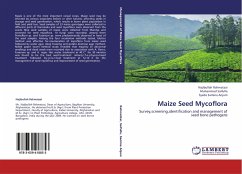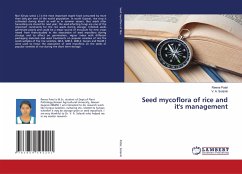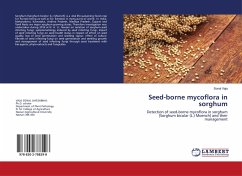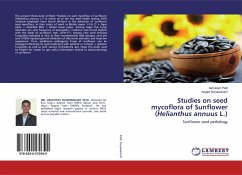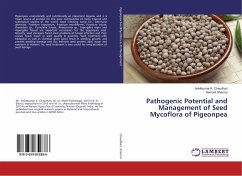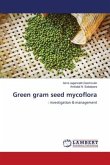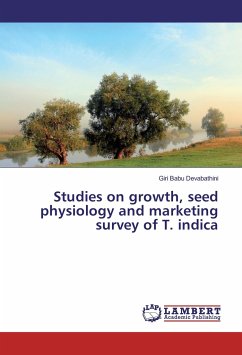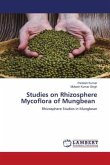Maize is one of the most important cereal crops. Maize seed may be infected by various organisms before or after harvest, affecting seeds in storage and seed germination, which results in lower plant population in field and yield loss. Seed samples of 23 maize genotypes were collected in different parts of Karnataka and seed mycoflora were observed from the seeds. Nine seed samples of maize were collected from Mandya and screened for seed mycoflora. 10 fungi were recorded, among them Penicillium sp. and Fusarium sp. were predominantly observed in most of the seed samples. Among the four incubation methods tested, blotter method was effective for enumeration of mycoflora from maize seed followed by water agar, deep freezing and potato dextrose agar method. Rolled paper towel method study revealed that majority of abnormal seedlings and dead seeds were recorded due to association with A. flavus, Fusarium sp. and A. niger. Hot water treatment at 40 C for 30 minutes was found to be the best seed treatment among the physical seed treatment followed by solar heat treatment at 12-14 h for the management of seed mycoflroa and improvement of seed germination.
Bitte wählen Sie Ihr Anliegen aus.
Rechnungen
Retourenschein anfordern
Bestellstatus
Storno

